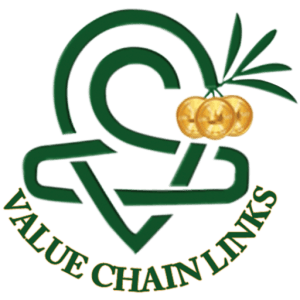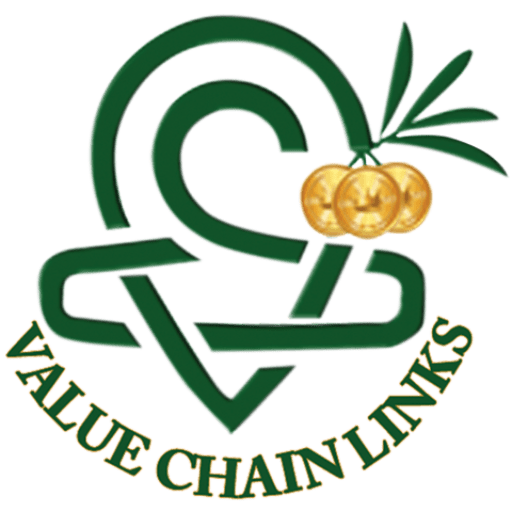WHY INVESTORS DON’T INVEST IN SMALLHOLDERS, AND HOW YOU CAN CHANGE IT

“Fear is a bad counselor.”
*In this column, “Africa” also represents other rural economies.
WHY AFRICA SCARES INVESTORS?
To export agro products, there is a need for several value chain partners, including technology, service, trading companies, and financial investors. For convenience, we will name that group “investors.”
Easy to see that the investor group is active and invests mainly in the Global North, although 97% of farmers are in underdeveloped economies in the Global South.
The gap in investments increases the North-South global economic gap. As a result, the Global South smallholders’ earnings are only 1% to 10% per hectare compared to that of the Global North professional farmers.
On the one hand, this gap causes global challenges, as presented in the UN 17 SDGs; simultaneously, it provides business opportunities like never before, i.e., big problems, big opportunities.
However, the business opportunities remain untapped so far as investors mistrust and misbelieve the ability to profit from the Global South agro sector.
But WHY do investors mistrust and avoid the Global South, e.g., Africa’s agro sector?
My own experience is from the reaction of Biofeed’s board of directors (BOD) when I, the CEO, shared with them my intentions to focus Biofeed’s business activities in Africa, and in general, in the Global South. They asked me what was wrong with Europe, the US, and Australia.
When I suggest to investors and companies’ CEOs (from the technology, service, and trading sectors) to join me in doing business in Africa, they look at me as if I have lost my mind, then they say:
“Am I crazy? To invest in Africa? In agriculture? In smallholders? What is wrong with you?
Farmers are poor; they have no money to pay for our technologies/services, and their produce is of low quality and yield, so they don’t stand a chance to earn enough to pay us in the future.
You can trust no one; everyone is corrupted, everything is expensive, logistics are horrible, converting income to hard currency is costly and kills the profits, and the list goes on and on.
I once tried and got burned. My friends and partners keep away and don’t regret it. I’m unfamiliar with anyone who invested in business related to Africa’s smallholders and made money.
In short, in Africa’s agro sector, things are unpredicted, at high risk, and profit (if any) is small. This is a minefield.
I will keep my agro business limited to the US, the EU, and wherever I can sleep well at night.
My answer to you remains a big – NO!”
What would you say to such a manager?
None of those investors consider the positive impact of a successful investment on the 97% of farmers and their countries, as they don’t seem to believe it is possible to make a nice profit there.
Before thinking of how to make money, investors are afraid not to lose what they already have. And, when they hear the words; “Africa” and “Farmers/Smallholders,” all they can think of are troubles and losses.
The automatic pilot of investors is set on; FEARS first, then PROFITS, and then TIME (fast).
Is there no way forward? Are we doomed to accept the current state?
DON’T ARGUE. UNDERSTAND THE INVESTORS!
It is easy for me to understand investors because I have been investing in the field of agriculture for over 20 years.
When I hear those stories, I know to what they refer, and I understand their view and implied actions.
At the same time, I keep focusing on my vision and goals – where farmers live in prosperity, the environment is sound and safe, our food is free of chemicals, and consumers have more food of better quality and choices.
Then, I ask myself, how do I bridge those? Without business-based investments, the future of farmers and the agricultural sector in Africa is doomed.
Can you imagine Africa, Asia, and LATAM without a strong agro-sector? I dismiss the thought.
It is not only my heart and vision that lead me but my mind, supported by plenty of data.
For example, about a $17 trillion missed business opportunities in the agro sector of those markets, investors’ ability to increase their short, mid, and long-term investments rapidly. And I won’t forget for a moment that farmers will increase theirs too.
CAN EVERYBODY PROFIT BIG TIME?
Since 1990, the use of pesticides in agriculture has increased by 80%, and technology has improved beyond recognition.

Did smallholders and nations increase their production or income in the same magnitude? No.
Only the AgroChemical and AgroTech companies did, not the farmers or their nations. Needless to say that those chemicals negatively impact our health and the environment.
Such results strengthened investors’ existing belief that it is impossible to have everyone profiting. In their eyes, agro-business is a zero-sum (or worse) game.
It seems the global agrochemical companies’ only wish is to create an addiction to their products.
Then in 2021, Dream Valley introduced its national model in Senegal, working closely (hand-in-hand) with small-hold mango growers.
Immediately, the mango export from Senegal to the EU increased from its “normal” level of 12,000-14,000 tons to over 24,000 tons in 2021. Over 70% export increase in one year!! Imagine you invested in that operation.
Remember, we are talking about Smallholders in Africa. This is NOT some fancy high-tech Silicon Valley company after a $200 M investment round.
Now, see who benefited this time; farmers, ALL value chain partners, the government of Senegal, and consumers.
In short – EVERYBODY involved benefited.
Dream Valley used state-of-the-art technologies, services, and know-how, which were available long before the project.
What made THE DIFFERENCE was using a novel business model with a set of protocols, creating short and far more profitable value and supply chains, all developed and applied by Dream Valley.
From investors’ point of view, unlike other models, the Dream Valley model enables a high level of predictability of the results and operating environment with a relatively low risk yet, handsome profit.
Dream Valley’s impact is immediate with a long-term, strategic view. Its vast producer (smallholders) potential is the closest to a Perpetuum mobile of producing profit.
Dream Valley shows it can work with smallholders in Africa, PROFIT, on a scalable model.
Senegal’s 2021 mango season provides Dream Valley, and any investor who has doubts, the three magic words – Predictability, Low-Risk, and Handsome Profit (short and long term).
BINGO.
DOING IT DIFFERENTLY
The 2021 Senegal mango export season is now a HARD FACT, not a prediction, a test, or a theory.
It was so extraordinary that it redefined what we thought we knew about smallholders’ ability to increase their income. Hence, it shook the ground under many old assumptions.
The 2021 Senegal mango season changed EVERYTHING we thought we knew about the source of prosperity and how to create it.
Here are some of the old assumptions related to smallholders in underdeveloped economies that were redefined by Senegal’s 2021 mango season –
» Smallholders can increase their income at tens percent per year per hectare.
» One year is sufficient to increase export by tens of percent.
» Smallholders can increase their income without the additional use of chemicals. Note – Dream Valley growers reduced 100% of sprays in the 2021 campaign.
» The entire value chain can act as a single entity (including the smallholders).
» A rapid export increase is possible even with a high-added value crop, i.e., mango.
» It is possible to work with smallholders and get high predictability, trust, and certainty.
» It is possible to have high profitability for all involved while working with smallholders.
» Tested and Proven Business Models and protocols are THE critical success factors.
» It is the “job” of a business model to pave a safe road for all value chain partners, enabling higher profits, predictability, safety, and long-term stability.
» The ongoing failures in bringing economic prosperity to millions of smallholders result from improper business models, protocols, wrong concepts, and mistrust between the value chain parts. Furthermore, the current goal of agrochemical companies is to sell chemicals, which is not aligned with smallholders’ and global goals.
» Based on the Israeli Agriculture Model, Dream Valley’s business model and protocols enable economic prosperity for the entire value chain – farmers, the national economy, service and technology providers, traders, investors, and… consumers.
» The Dream Valley novel model presents a fast track to solving the UN SDG 1 to 3; (1) Poverty, (2) Hunger, and (3) Good health and well-being.
Over the years, investors have sought security and a safe road to work with smallholders in supplying more technologies and services (e.g., the AGRA project).
However, it turns out that the safe road to prosperity is in advanced dedicated business models and protocols for smallholders.
Even when using the same crop (i.e., mango), farmers, and country, the business results largely depend on the business models and protocols.
In 2021, Dream Valley’s farmers more than doubled their production and income, while their neighbors remained with the same poor results.
Africa, Agriculture, and Smallholders shouldn’t be words that scare investors and agro-companies.
Twenty years ago, business people and investors rushed to China to take advantage and profit from its industry’s benefits.
Now it is time for Africa to bring a similar advantage. I hope to see investors taking advantage and benefitting from Africa, Asia, and LATAM smallholders and turning it into a source of profit, prosperity, and hope.
The importance of business models does not dismiss the need for advanced technologies, services, and know-how; it only enables one to profit more from those, or much more, by using dedicated proper business models.
SMALLHOLDERS’ VARY
There are 550 million smallholders globally; they cultivate many crops in many places, each with different needs, limitations, options, and aspirations.
It means that there is no single “Magic” Business Model that can fit them all. We need many dedicated customized and localized business models.
Each dedicated business model eventually needs to pave a safe road for its users, i.e., farmers, value chain partners (including investors), and consumers.
Now you understand why the International Conference On Business Models In Agriculture (IBMA) is essential for global prosperity, particularly for smallholders, investors, and companies working with them.
Don’t hesitate to participate in Rwanda’s IBMA conference on March 27-29, 2023.
In addition, you can invest or be a business partner of Dream Valley, thus, saving time, money, and profit soon.
Stop wasting $ millions on “more of the same” type of solutions, and instead take one brave step that would change the future of your nation.
The Dream Valley model is your vehicle to pave roads even where it seems to be an impossible minefield.
Note that Dream Valley currently focuses on the $ 60B mango industry. Other high-added value crops will follow.
The road for investors to benefit from the agro sector in Africa, Asia, and LATAM is paved, secured, profitable, and now OPEN for all.
| TAKEAWAYS» INVESTORS keep away from risk and uncertainty. Hence, they don’t invest in smallholders.» DEDICATED business models and protocols can create predictability, safety, and high profits, which are fundamental in drawing investors to invest in smallholders.» DREAM VALLEY enables investors to act in underdeveloped economies with high certainty, low risk, and unprecedented profitability and scaling-up ability. | |
| If you enjoyed the article please share it with friends & colleagues. » SUBSCRIBE « *** Mental and Economic Freedom Are Interconnected. *** See you soon, Nimrod |

